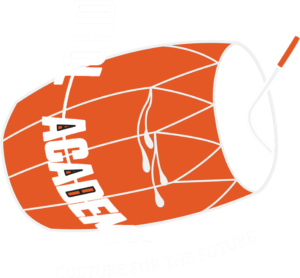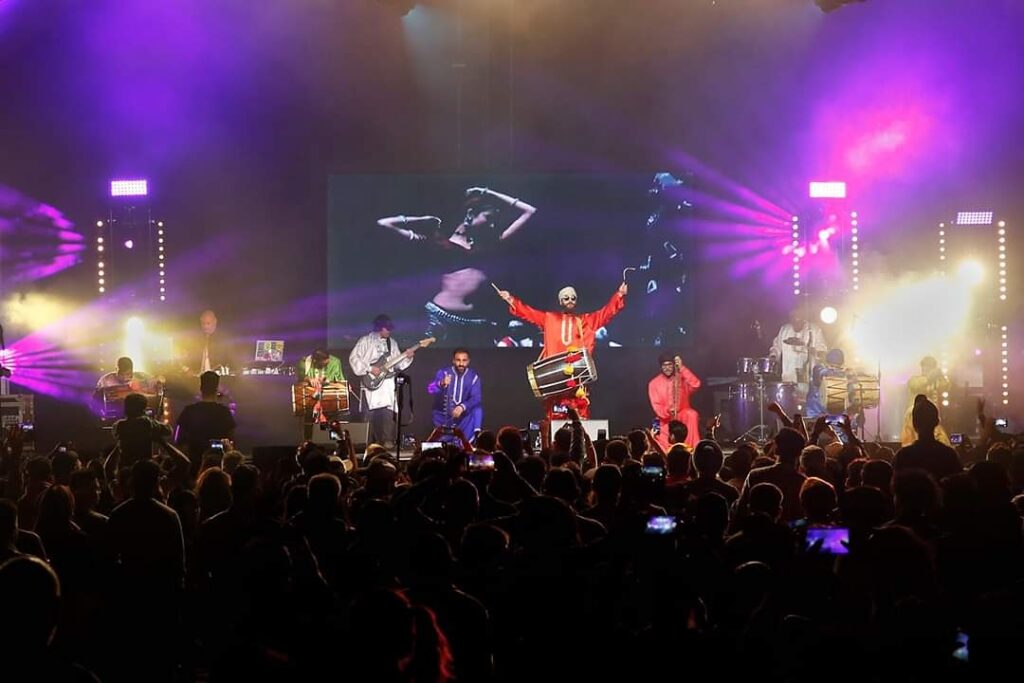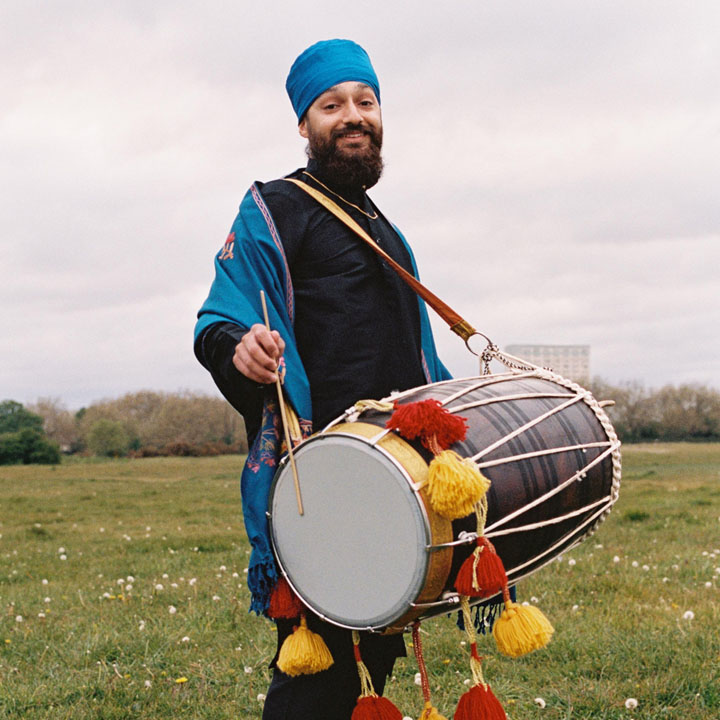Jasdeep Singh Bamrah:
“I’ve been learning Dhol ever since I was a toddler. Not long after I was born, my Dad, (known by many of our students as Dhanna Uncle) took me to one of the Dhol Academy classes to show me off to all his friends – keeping in-mind Dhol Academy is a community where music is at its core but where people gather to socialise with one another too. And that was it… I was hooked. I started picking up pencils/pens and constantly tapping on everything. By the age of 2 I was already tapping out the chaal rhythm, and that’s when my Dad felt I had something and decided I should start learning from those more experienced. I attended Dhol classes weekly and learnt until around the age of 12 from many of the older Dholis at Dhol Academy.
Learning from a wide and diverse group of Dholis helped me to understand different teaching techniques and guided me enormously in developing my own skills as a Dholi.
Then around the age of 12/13 years old, I began teaching my own Dhol class with Dhol Academy. Teaching at such a young age worked in my benefit. By helping others I constantly saw opportunities to improve myself. My students pushed me to always improve, as I needed to think outside the box and develop new material for them to learn!
Over the following years, my class grew in size – until I had 30 students attending weekly. I have performed at and led Dhol Academy, alongside Parmi, at many events throughout the UK, including The Queen’s Jubilee Pageant, Newham Music’s Passing The Torch, The London Mela, Vaisakhi in the square, Wembley festival of lights – under the Wembley arches, Weddings and many more. I’ve performed alongside many groups including The Live Experience Live Band, The White Keys, Newham Music Orchestra, Addictive TV, Rhythms Of The City, Transe Express to name a few – and I’m sure there’s so much more to come!
Once I started university, I had the opportunity to join a Bhangra dance team and learnt about Panjabi Folk Dhol. I gained insight on how different rhythms are played to accompany contrasting dance moves, and how a variety of sounds are used to create wide-ranging rhythms. I started to study this in more depth, by watching videos of Folk Dholis and Bhangra teams and replicating the rhythms while practising. Then one random day whilst scrolling through Instagram, I found my Ustaad Ji – Gurmukh Singh. I saw a video of Ustaad Ji playing Dhol, and immediately sent a message asking whether he would consider taking me on as a student. Luckily for me, I was given a chance and from there on my life changed!
Ustaad Ji has introduced me to the world of Sufi’s. The intricacy with which they play Dhol, the complex patterns they play, the mathematical understanding required to break down the patterns and the amount of dedication required to gain their respect and time. I’m nowhere near the finished article, I have so much to learn and work on, but my style of playing dhol has drastically changed. Having also learnt Tabla from a young age, I combine my Tabla knowledge with my Dhol knowledge as part of my teaching. All of the rhythms and compositions are transferrable between both instruments and it’s always a brilliant challenge to replicate a Tabla piece on the Dhol!
Recently, I have built a whole new syllabus for my students to learn Dhol. Educating them on the Timings of Indian Classical Music and the amazing language of notes, hopefully my students will be able to help change the perception Dhol has in this country. It’s not just an instrument which is to be played at a party for a bit of noise. It’s a wonderfully complex instrument which needs to be respected.
A Dhol is a being, its bass is the bottom, it’s treble the head. Respect your Dhol like that, and you’ll open your mind to learn so much more. Then when you do perform at an event or even a party, you can blow away the crowd with your funky rhythms!”






